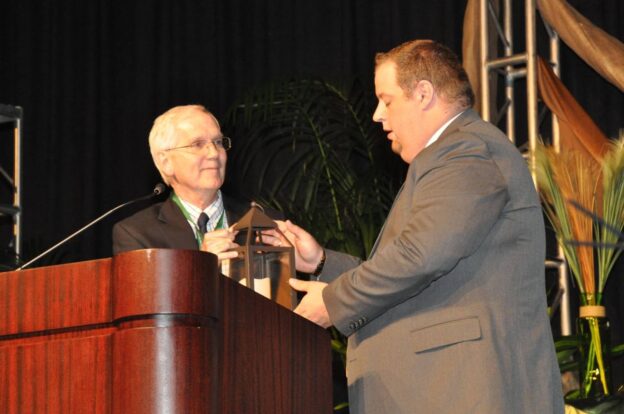The Lost Art Of Testimony by Larry Frank

As a teenage follower of Jesus, I suffered from a terrible affliction. It was an ailment that primarily reared its head in communal gatherings. I was heavily involved in things like Chrysalis and camping ministry. My malady would arise whenever there was a time of testimony…I came to realize that I was suffering from a terrible disease called testimonius-enviousness. I would sink deep into my pew or chair and hang my head as people shared how Jesus had rescued them from teenage drug addiction or alcoholism, from a life of partying and sleeping around. They would share how at the lowest point of their lives, Jesus rescued them and they became followers of His. I really was grateful for what Jesus had done in their lives, but my testimony? It wasn’t that. Make no mistake, the change in me was huge after Jesus found me at a week of church camp when I was 14, but no one was ever going to have me highlight the testimony time. My depression, anxiety, loneliness and broken home didn’t make for a powerfully moving story.
Okay, I made testimonius-enviousness up. But years of ministry have shown me I am not alone in this diagnosis. And, I really did have testimony envy.
Now, as an older (and thankfully more mature) follower of Jesus, I see clearly the Holy Spirit’s work within me. I’m so grateful for what Jesus did to find me, and what He continues to do to help me reclaim my true, authentic humanity as I discover my identity as His beloved. I’ve also come to learn that the broader spread of testimony envy marks something unhealthy in our church. I’ve also come to believe that our own “church-culture” created this disorder. Far too often, when we need someone to share a testimony, we look for the most extreme and dramatic stories. I’ve been cured of my testimony envy.
It’s my belief that this culture, while likely well-intentioned, has helped us (especially those of us in the Wesleyan tradition) lose an essential practice–the sharing of testimony by everyday, ordinary followers of Jesus. Hear me, I love hearing how Jesus met people at the darkest points of their lives and brought them into His Kingdom–but sometimes I wonder what God has been up to in their lives since their conversion. My inoculation has also been a great revealer. God is indeed working in all of our lives in incredible ways – often more beautifully and powerfully in the days and years beyond conversion. We’ve just lost the art of sharing those everyday testimonies. It’s time to reclaim this lost art.
From the earliest days of the Wesleyan Methodist movement, testimony was at the very heart of the community. Wesley and his followers understood that personal experiences of God’s grace were not private matters alone; they were indeed essential tools for discipleship, encouragement, and yes, evangelism. Speaking exclusively from my seat as a church leader in the West, testimony-sharing has been relegated to rare and special occasions or overlooked altogether. It is time to recover a practice of testimony in worship, small groups, and spiritual formation.
The Biblical and Wesleyan Foundations of Testimony
Testimony is deeply woven into the tapestry of Scripture. After the Samaritan Woman’s encounter with Jesus in John’s Gospel, we read, “Many of the Samaritans from that town believed in him because of the woman’s testimony, ‘He told me everything I ever did.’”* Likewise, the Apostle Paul, repeatedly shared his testimony in Acts 22 and 26, using testimony as a tool for evangelism. In the closing pages of Scripture, Revelation 12:11 reminds us that “They triumphed over him by the blood of the lamb and by the word of their testimony.”
John Wesley built on this firm Scriptural foundation by emphasizing testimony from the earliest days of our movement. He saw testimony as absolutely essential for spiritual growth and evangelism. The early classes and bands were marked by the regular sharing of experiences of God’s grace. Even Wesley’s key question, “How is it with your soul,” is more than a polite icebreaker but an invitation to testify to God’s goodness and faithfulness.
Public testimony was also central to Methodist gatherings beyond small groups. At the Love Feast (quarterly communal meals inspired by Acts 2:46), participants were given opportunities to share how God was working in their lives. Kevin Watson, in his recent comprehensive history of Methodism in America, Doctrine, Spirit, and Discipline, writes:
The highlight of the meeting was a time where members shared ways they had struggled and testified to triumphs of God’s grace over struggles and temptations. The love feast was a communal event that made visible and vocal how God had been at work in the lives of Methodists in the community that might have been more difficult to see otherwise.**
Wesley himself would write in his journal about one of these love feasts. God’s power was made known through the “honest simplicity with which several spoke, in declaring the manner of God’s dealings with them…[and] set the hearts of others on fire, and the flame spread more and more, till, having stayed near an hour longer than usual, we were constrained to part.”***
Testimony was far from a nostalgic practice, Wesley saw it as a dynamic tool for spiritual formation. Testimony was essential for:
- Encouragement. Believers were strengthened by hearing others’ stories. Testimonies reminded everyone that grace was available and active.
- Evangelism. For many, testimonies were more effective evangelism tools than theological argument or presentation.
- Fostering Community. The act of sharing testimonies deepened relationships. The early class meetings were built on testimony. The sharing that happened in the meetings forged a deep bond between participants that aided in their shared pursuit of holiness instead of struggling in isolation.
How Testimony Faded in the Modern Church
Despite the scriptural witness and importance in early Methodism, testimony has largely faded from modern worship and Christian formation. While by no means meant to be exhaustive, I’ve observed the following four factors that have contributed to this wane:
-
A Shift to More Structured Worship Services. Sermon-centric, attractional worship has eclipsed participatory, spirit-led gatherings in most churches. The act of testimony has often been squeezed out of worship services for the sake of time and more “trained” communicators.
- A Cultural Discomfort with Vulnerability. In our age of carefully curated social media personas, a good number of Christians are hesitant to share personal struggles. Sharing testimony requires authenticity and a level of transparency, but our culture often encourages only polished, surface-level interaction.
- A Fear of Emotionalism. Excessive emotionalism has caused many church traditions to be wary, and with good reason. Unfortunately, this has caused churches to distance themselves from testimony, fearing it could become overly dramatic.
- A Rise of Hyper-Individualized Faith. The Western Church has shifted toward a privatized faith, where personal experiences of God are seen as exclusive rather than communal. This is contradictory to the Wesleyan movement, where corporate spiritual growth is emphasized.
Practical Ways to Revive Testimony in the Church
I believe it is vital to revive the practice of testimony in the Church. Here are some practical steps to begin to restore this powerful practice:
- Reintroduce Testimony in Worship. Churches can set aside a few minutes in each service for members to share stories of how God is working in their lives. Testimony should not be an occasional event but a regular rhythm. At the Church I serve, we have found that it is quite effective to have someone share testimony when highlighting a recent event, making a financial or volunteer ask, and at baptism services. In so doing, the entire congregation regularly hears testimonies from ordinary people, who, like them, are experiencing God’s grace in their lives. Each follows a basic format that answers 3 questions: What was life like before? What was a turning point? What has been the result? Oh, and by the way, anytime someone is going to share their story, get their permission to record it! Then churches have the option to do something like “Testimony Tuesdays” on social media, featuring short video testimonies of transformation.
- Host Testimony Nights and Love Feasts – When I was in high school, one of my pastors attempted to introduce the Love Feast as printed as a service in the book of worship. It was, well…it was bad. Crackers and water, and almost no one said a word. There is a better way to bring back the Love Feast. For example, the Campus Pastor of one of our campuses at Grace Church has revived the Love Feast, albeit without calling it such. Her campus hosts quarterly potluck and testimony nights. She recently told me that they always had a few potlucks a year, but she wanted to be intentional about hearing one another’s experiences with God. So about four years ago, they changed the potlucks from being just about food to being about testimony…with food! Each of their quarterly testimony nights have a theme such as gratitude, or service, or even a current sermon series. Aside from normalizing sharing one’s testimony of what God is doing in their life, she reports that “people get to know each other, find areas that they have in common, discover interesting things, and gain insight into what makes a person tick.” She also shares that deep friendships and even small groups have formed because of these testimony potlucks. This would not be a hard pivot for most churches to make.
- Encourage Testimony in Small Groups – Small group leaders should consistently invite members to share their spiritual progress, struggles, and victories. Remember, “how is it with your soul?” is more than an icebreaker. It’s an invitation to testimony. At Grace Church, we begin every meeting with “Glory Sightings” where we see where we have seen God at work since we gathered last. These mini testimony times help us to see God’s continuous work and to share in one another’s successes and struggles.
- Teach Testimony as a Spiritual Discipline – Just as we teach prayer and Scripture reading, we should be training Jesus followers how to share their testimony. Not just of their conversion, but of how God is active in their lives right now! The more we teach others how to share testimony, the more they see others sharing theirs, the more of a normalized rhythm it will become.
Friends, we have the ability to cure “testimony-envy!” When testimonies are shared, we experience that which C.S. Lewis called “the good infection of the gospel” in personal story form:
He came to this world and became a man in order to spread to other men the kind of life He has–by what I call ‘good infection’. Every Christian is to become a little Christ. The whole purpose of becoming a Christian is simply nothing else.****
Testimony is not just a relic of the past—it is a biblical, Wesleyan, and transformative practice that needs to make a comeback! When believers share their stories, the church is strengthened, and lives are changed. The work of God in our lives is preserved best by sharing it in community! If we truly want to see revival in our churches today, we must reclaim the lost art of testimony.
*John 4:39
** Kevin Watson, Doctrine Spirit and Discipline: a History of the Wesleyan Tradition in the United States, 154
***John Wesley, Journal, February 18, 1750, in Works, 20:321
****C.S. Lewis, Mere Christianity, 154.
Subscribe
Get articles about mission, evangelism, leadership, discipleship and prayer delivered directly to your inbox – for free








